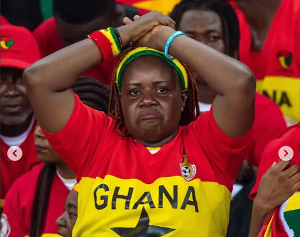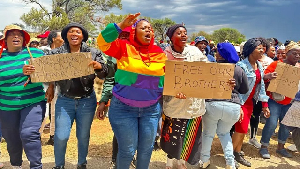Ada Foah (G/R), Aug. 17, GNA - Doctor Seth Twum, a Judge of the Supreme Court on Wednesday noted that those who read and practised law in Ghana in the past were not adequately prepared to deal with the present sophisticated crimes.
This, he said, had contributed to the seeming disregard for the punishment of organised crimes.
He said the massive revolution in crime had dramatically changed the landscape, with criminals finding new ways of dodging prosecution when caught, thus suggesting that the laws should be reviewed and amended to reflect recent trends in combating the menace, which had assumed a global face.
"Old ways should give way to new concepts and techniques in combating the menace", he said at the opening of a three-day seminar on Trans-national Organised Crime Conventions at Ada Foah in the Dangme East District of the Greater Accra Region.
Dr Twum noted that the sophisticated stance of organised crime posed a challenge to sitting Judges and Prosecutors because most of those crimes and the corresponding punishment were not listed in the statute books.
The situation, he held, was making it difficult to handle such previously unknown crimes, adding that it had the potential to corrupt law enforcement agencies.
The Supreme Court Judge suggested that to combat the problem, the country should have a new look at the way crime was being documented to know what criminals were doing to outwit the authorities.
Also, the security agencies should start considering the use of covet surveillance by employing equally sophisticated systems to understand the new trends in crime to assist in the apprehension of perpetrators.
Dr Twum held that the country's laws should be reviewed periodically to contain such trends because Ghana's administration of justice could not remain immune to global challenges. The workshop is aimed at sensitising and refreshing stakeholders, who mattered in combating crime, to understand what the convention stands for and what is expected of each of these institutions in the area of co-ordination and support for each other.
It is also aimed at deepening their understanding of legal regimes on drugs, money laundering, arms and human trafficking as well as seek suggestions on the improvement to the laws to make them more forceful in dealing with these crimes.
The workshop seeks to underscore the importance of Judges, Prosecutors, and law enforcement agencies in combating organised crime in Ghana and the tools to enable them to achieve results as well as understand the dimension, nature and character of the problem of organised crime.
It is being organised by the Ministry of The Interior and the Narcotics Control Board (NACOB). The United Nations Office on Drugs and Crime (UNODC) is funding the seminar.
Trans-national crimes include drug trafficking, money laundering, human trafficking and arms trafficking.
Capt. Nkrabeah Effah-Dartey (rtd), Deputy Minister of The Interior, said the use of Ghana as a launch pad for trans-national crimes was denting the image of the country in international circles and called for a concerted effort to stop the menace.
He expressed shock at some of the judgements at the courts where criminals sent there were virtually set free, thus frustrating the efforts of the security agencies in apprehending them.
"We should take a second look at what is going on in our courts. Some of their judgements quell the zeal with which the security agencies work. Personnel work diligently to apprehend criminals, who are later freed by our courts."
Col. Isaac Akuoko, Executive Secretary of the NACOB, said the perception of crime must be seen in the broader context now because it was now organised and being perpetrated by networks and syndicates whose activities cut across boundaries.
He told the participants that that there was the need to look at areas previously not considered making linkages to other crimes, because the successful commission of one crime depended on another criminal activity.
Col. Akuoko said that since Ghana was a signatory to UN Conventions, it was obliged to work with other nations to ensure that the country would not be a safe haven for criminals, adding: "We cannot afford to be left behind."
Miss Kareen Kramer, a representative of the UNODC, stressed the need for Ghana to collaborate with other countries to quell the problem because of its global nature.
She expressed the hope that Ghana would ratify the UN Conventions on organised Crimes and all its protocols, saying: "These are steps that would help Ghana deal with the situation." Participants are drawn from the Judiciary, Security agencies and relevant organisations.
Crime & Punishment of Wednesday, 17 August 2005
Source: GNA
















